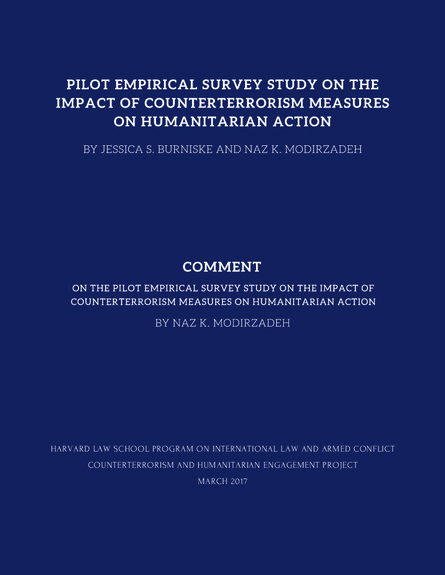
Counterterrorism laws and policies have affected the humanitarian sector in consequential ways. Amid humanitarian crises in places such as Mali, Somalia, Syria, and Yemen, counterterrorism laws and policies have proliferated over the past two decades. The background concern is that counterterrorism measures are capable of functioning in a way that could prohibit or otherwise impede forms of humanitarian action. Considerable time, attention, and other resources have been dedicated to ascertaining and addressing the impact of counterterrorism legal and policy frameworks on humanitarian action.
In conducting this pilot study, we sought information and perspectives from humanitarian actors operating across the globe and in a variety of settings and positions within organizations. In short, we found that while further research on these issues is needed, survey respondents indicated over all that counterterrorism laws have a real and tangible impact on the work of humanitarian actors and that, in some cases, those laws have reportedly chilled humanitarian assistance. Many survey respondents also reported a lack of clarity regarding counterterrorism laws and policies. This uncertainty persists despite a reported general awareness of the laws and corresponding instructions provided by humanitarian organizations.